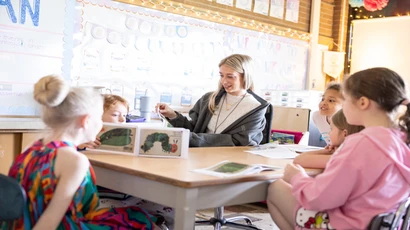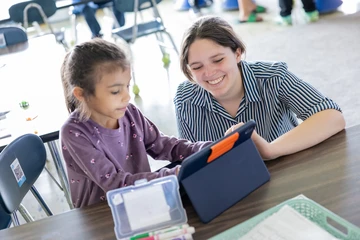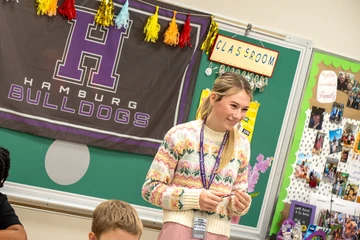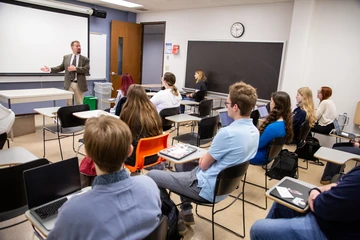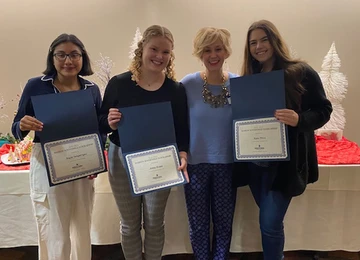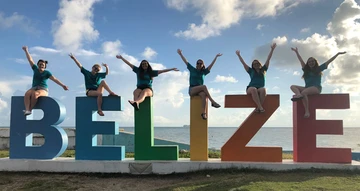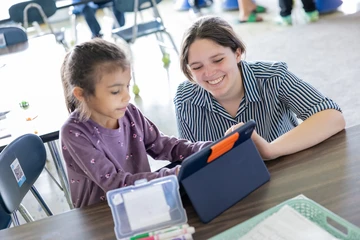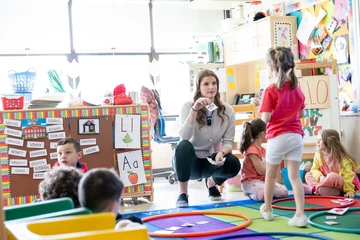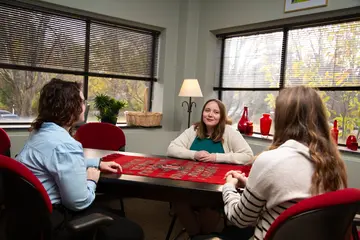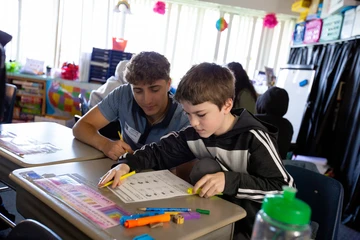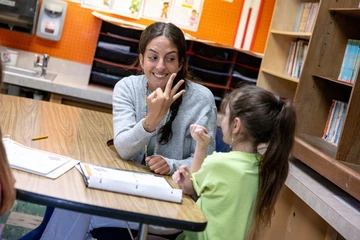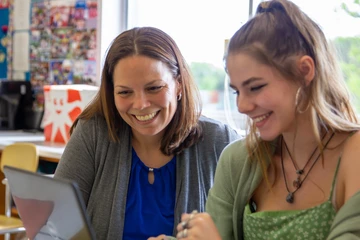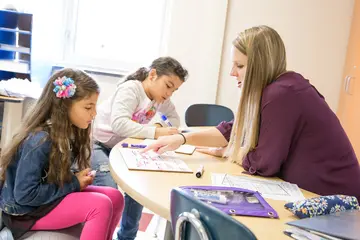*Students must earn a B or higher in SS 212 (105/106), PS 207 (EDU 225) , and B- or higher in SS 214 (EDU 250/251) .
*Students must have a *minimum 3.0 cumulative average for admission to the department.
*Students must take HI 101 or 102, US Hist I/II to satisfy a SUNY Gen Ed requirement
*Students must take one semester of foreign language
*Depending on concentration selected, it may take longer than 4 semesters to complete the BSEd degree.
*Students interested the the dual certification program for Early Childhood/Childhood Education should complete the following courses at ECC to stay on track to graduate in 8 semesters:
CC 202/203 (EDU 221/222) and CC 250 (EDU 315)
Concentrations: Students must select a concentration for the major and should take a minimum of 12 credits in the concentration at ECC. Concentrations are listed below.
English
EN 276 (ENGL 106) is a required course for the concentration and must be taken at ECC
- A maximum of 9 additional credits will transfer to Fredonia at the 200 Level; students may transfer courses that transfer as ENGL or WRTG subject Codes
MATH
MT 118 (201), MT 119 (202); calculus sequence: MT 175/176 (MATH 120/121) OR MT 181/182 (MATH 122/123); MT 292 (MATH 231)
MUSIC
MU 100 (MUS 233), MU 200 (MUS 101), MU 210 (MUS 115), MU 213 (MUS 264), MU 214 (MUED 210), MU 215 (MUS 265) students can also transfer a maximum of 6 ensemble credits towards the concentration
Natural Sciences
Physical Science: 6 credits from the following: CH 116 (CHEM 113), PH 270/271 (PHYS 121/123), PH 272/273 (PHYS 122/124)
Life Science: 6 credits from the following: BI 101 (BIOL 111), BI 107 (BIOL 110), BI 110/115 (BIOL 133/134), BI 225/226 (BIOL 131/132), PH 120/121 (ESCI 105/1TR)
Earth and Space: 6 credits from the following: AS 180/181 (GEO 150/1TR), AS 182 (PHYS 118), GL 160/161 (GEO 165/169)
9 credits of electives in any natural science discipline listed above
Social Sciences
Students must take HI 106 (HIST 243) and HI 101 (HIST 222) OR HI 102 (HIST 223)
12 credits can transfer at the lower division (100/200) and 12 credits can transfer at the upper division (300/400) from at least TWO different disciplines from the following subjects: Anthropology, Economics, History, Political Science, Psychology, Sociology
The following transfer at the upper level (300/400): PS 102 (PSY 328), PS 202 (PSY 356), PS 203 (PSY 345), SO 202 (SOC 320)
STEM
MT 118 (MATH 201), MT 119 (MATH 202)
18 elective credits from two different disciplines in the following subjects: chemistry, computer science, geoscience, math, physics, statistics
World Languages
SP 112 (SPAN 215) and SP 201 (SPAN 216); The following transfer at the Upper Level: SP 202 (SPAN 313), SP 205 (SPAN 315), SP 206 (SPAN 427)
OR
FR 112 (FREN 215) and FR 201 (FREN 216); The following transfer at the upper level: FR 205= (FREN 315), FR 207 (FREN 319)
Students will choose one option below. Both options will require students to complete upper level courses in their primary major at Fredonia
1 - Approved study abroad experience (3-15 credits) in a non-English Speaking country which will develop fluency in the primary language/and or additional 300/400 level language courses in literature, civilization,
or advanced language courses in the primary major.
OR
2- Nine credits in literature, civilization or advanced language courses in the primary language above the 113 (216) level plus beginning level courses (6 credits) in a secondary language, including sign language.
This Sample Transfer Path is based on the requirements published in the University Catalog.
Transfer Policy:
SUNY General Education/Fredonia Foundations: Students who earned an AA/AS SUNY Degree in 2015 or later, or completed the SUNY Gen Ed requirement prior to transferring, will have satisfied Fredonia Foundations, our local general education requirement. Students who earned any other SUNY Degree may need to complete additional Fredonia Foundation courses at Fredonia. Such students should consult with their current advisor regarding the SUNY Gen Ed requirement and applicable courses. All SUNY General Education courses will be verified by the General Education Transcript Addendum, GETA, which is sent with the SUNY transcript.
Transfer Credit Policy:
Please refer to our Transfer Credit Policy in the College Catalog for current information.

